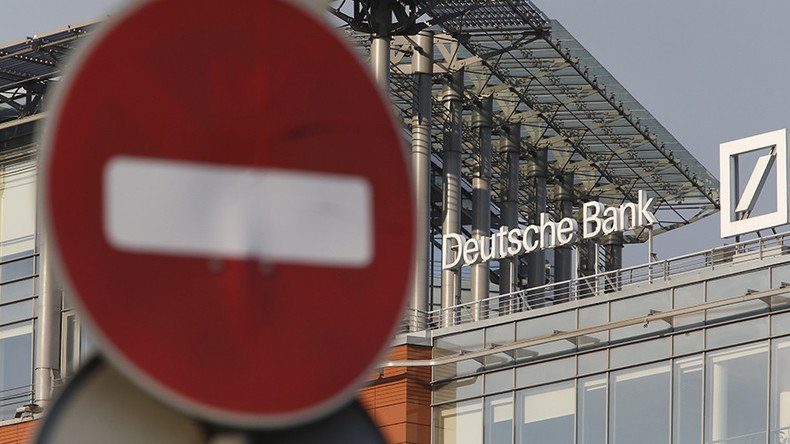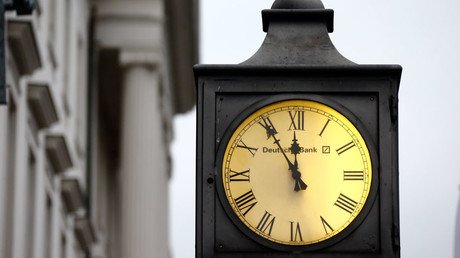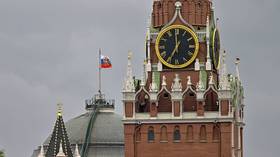Berlin faces Deutsche Bank bailout dilemma

Speculation continues over possible state aid for Deutsche Bank, along with concern whether Germany's biggest bank could survive without the bailout or become the next Lehman Brothers.
Deutsche Bank is facing a record $14 billion fine from the US Department of Justice over the bank’s mortgage-backed securities business before the 2008 financial crisis.
The German bank's shares have lost more than half of their value since January after it booked an almost €7 billion loss in 2015. Its market value shrank to a record low of €14.5 billion on Monday, following reports of Chancellor Merkel’s refusal to provide state aid if the bank is forced to pay the US fine.
Only a substantial intervention by the German government can stop the collapse of Deutsche Bank, according to Stefan Muller, CEO of Frankfurt-based boutique research company DGAW.
"Deutsche Bank doesn't realize that something serious needs to happen," he told CNBC, adding that there was no way the German government would admit to it, but, "of course there is a rescue plan, that's their job."
But according to a senior lawmaker in Chancellor Angela Merkel's conservative bloc, Germany will not grant any more state aid to ailing banks, Reuters reported on Thursday.
READ MORE: Deutsche Bank refuses to pay $14bn US penalty
The German government is in a difficult dilemma over whether to save the bank whose assets are valued at about €1.8 trillion, half the size of the country's economy.
Berlin backed itself into a corner by not allowing Italy to break eurozone rules and bail out its troubled banks.
European Central Bank president Mario Draghi, has been criticized for the ECB’s low interest rates policy and bond buying program, rejected attempts to blame him for Deutsche’s troubles.
Deutsche Bank shares slide to record low, Merkel rules out state aid https://t.co/ZuMQpx3rUBpic.twitter.com/PjDmXEXlo8
— RT (@RT_com) September 26, 2016
“If a bank represents a systemic threat for the eurozone, this cannot be because of low interest rates,” he told journalists in Berlin after meeting with German politicians.
Deutsche's problems have raised questions about the health of other big European lenders, with analysts worried the bank’s case could trigger a financial crash like that seen in 2008.
Deutsche Bank CEO John Cryan has told the media that there was "no reason to worry,” the bank had a "comfortable cushion," and that the "state aid is not an issue."













